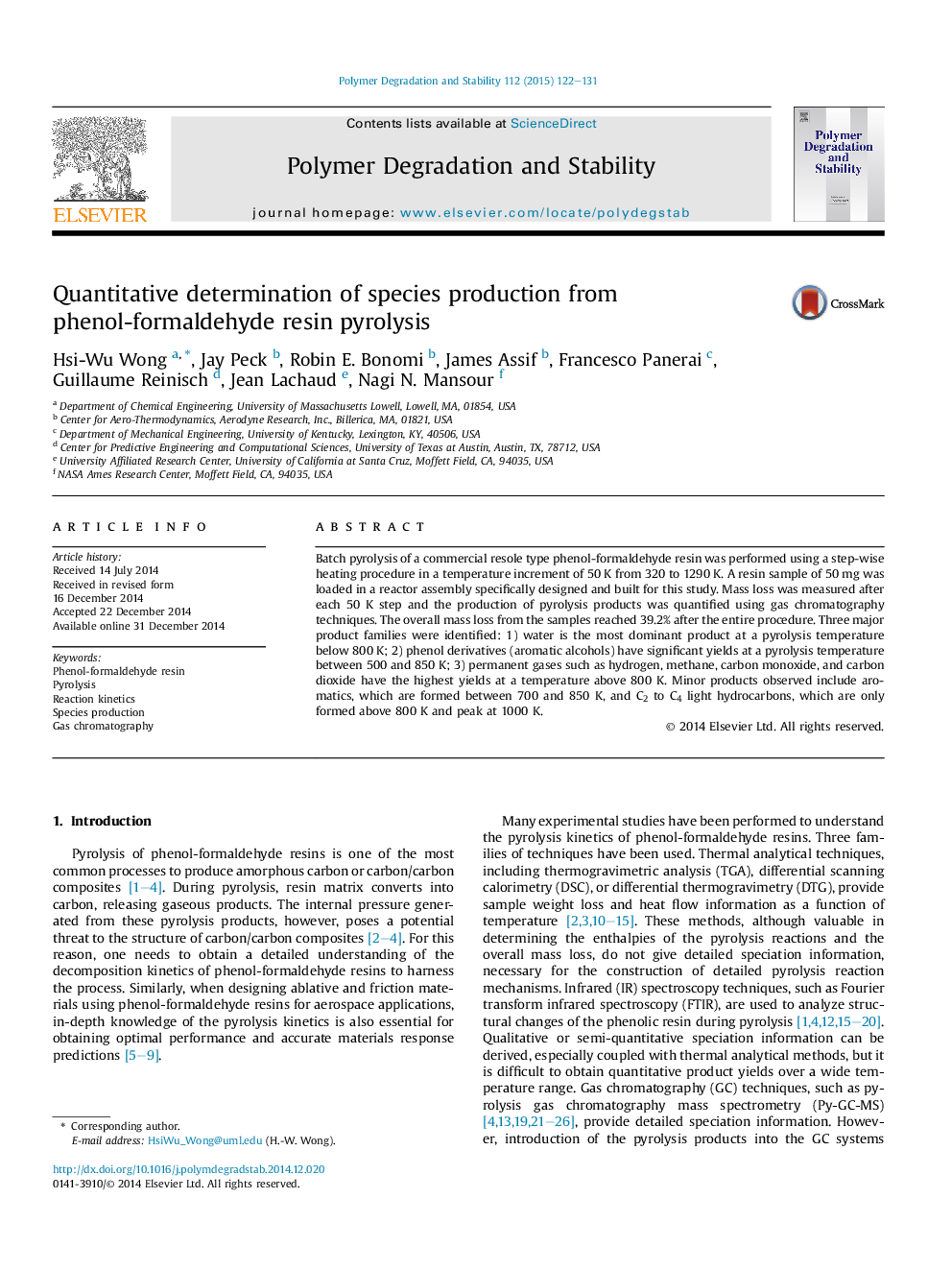| Article ID | Journal | Published Year | Pages | File Type |
|---|---|---|---|---|
| 5201526 | Polymer Degradation and Stability | 2015 | 10 Pages |
Abstract
Batch pyrolysis of a commercial resole type phenol-formaldehyde resin was performed using a step-wise heating procedure in a temperature increment of 50Â K from 320 to 1290Â K. A resin sample of 50Â mg was loaded in a reactor assembly specifically designed and built for this study. Mass loss was measured after each 50Â K step and the production of pyrolysis products was quantified using gas chromatography techniques. The overall mass loss from the samples reached 39.2% after the entire procedure. Three major product families were identified: 1) water is the most dominant product at a pyrolysis temperature below 800Â K; 2) phenol derivatives (aromatic alcohols) have significant yields at a pyrolysis temperature between 500 and 850Â K; 3) permanent gases such as hydrogen, methane, carbon monoxide, and carbon dioxide have the highest yields at a temperature above 800Â K. Minor products observed include aromatics, which are formed between 700 and 850Â K, and C2 to C4 light hydrocarbons, which are only formed above 800Â K and peak at 1000Â K.
Related Topics
Physical Sciences and Engineering
Chemistry
Organic Chemistry
Authors
Hsi-Wu Wong, Jay Peck, Robin E. Bonomi, James Assif, Francesco Panerai, Guillaume Reinisch, Jean Lachaud, Nagi N. Mansour,
